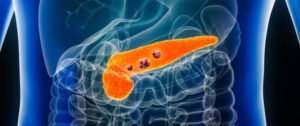
Sinus Cancer Symptoms are Like Sinusitis, Seek Medical Attention Quickly if You See These Digns! Causes, Examinations, and Treatment Explanations
Sinus cancer is quite rare, with an incidence rate of only 3% of head and neck cancers. However, because the symptoms are similar to allergic rhinitis and sinusitis, many patients are diagnosed in an advanced stage, and the 5-year survival rate is less than 50%; after all, What is sinus cancer? Why do you get sinus cancer? What are the signs and symptoms of sinus cancer? We explain it in depth for you!
What is sinus cancer? Understand the location and structure of the sinuses
Paranasal sinus cancer refers to malignant tumors that occur in the paranasal sinuses. The paranasal sinuses are located around the nose and eyes. They are symmetrical and have four pairs of chambers, namely:
- Frontal sinuses: below the forehead and above the nose.
- Ethmoid sinuses: next to the upper nose, between the eyes.
- Sphenoid sinuses: The deepest sinus, located behind the nose and in the center of the skull.
- Maxillary sinuses: located below the nasal fossa and on the outside of the nasal cavity.
According to the location of sinus cancer, sinus cancer can be subdivided into frontal sinus cancer, ethmoid sinus cancer, sphenoid sinus cancer and mandibular sinus cancer. Among them, the above mandibular sinus cancer is the most common; and according to the cell type of the lesion, sinus cancer can be divided into They are the following 5 types (in order of incidence):
- Squamous cell carcinoma
- Salivary gland cancer
- Malignant lymphoma
- Other non-malignant lymphoma sarcomas
- Malignant melanoma
Sinus cancer commonly occurs in middle-aged and elderly people over the age of 45, and the incidence rate in men is twice that of women.

Causes of Sinus Cancer
The following factors may cause cells to become cancerous and increase the risk of sinus cancer:
- Long-term inhalation of dust or toxic chemicals such as wood chips, nickel metal, dioxin or nitrous acid.
- Smokes
- Alcoholism
What are the signs and symptoms of sinus cancer?
Early symptoms of sinus cancer are similar to allergic rhinitis, sinusitis and some dental diseases, including:
- Unilateral nasal obstruction
- There is blood when blowing your nose
- Rhinorrhoea
- Poor sense of smell
- Cheeks are swollen and numb
- Maxillary toothache, hard palate swelling and pain
As sinus tumors continue to develop, the following symptoms will appear in the later stages of sinus cancer. Usually, the tumor is very large at this time, and treatment is difficult and risky.
- Facial distortion
- Extosis
- Movement disorders
- Double vision, impaired vision
- Difficulty opening mouth
- Headache
- Lump in neck

How to diagnose sinus cancer
If you have the above symptoms, and your nasal discharge appears bloodshot for 1 to 2 consecutive weeks, or is accompanied by facial swelling, numbness and other symptoms, it is recommended to go to the hospital’s otolaryngology department for examination immediately; the doctor will first analyze the relevant medical history and make a judgment through physical examination. Whether there is a possibility of sinus disease and if further diagnosis is needed, the doctor may use the following methods to determine the location and size of the tumor and formulate subsequent treatment strategies.
- Sinus Endoscopy (Sinosopy)
- Blood test
- CT scan
- X-ray
- MRI
- Abdominal ultrasound
- Whole body bone scan
- Sinus biopsy
Sinus Cancer Treatment
The treatment for sinus cancer is mainly surgical resection plus radiotherapy. Since the sinuses are close to important organs such as the eyeball and brain, the scope of surgery is limited, so postoperative radiotherapy is usually used to remove remaining cancer cells. However, if detected early, The doctor may first use radiation therapy to shrink the tumor and reduce the impact of surgery on the appearance of the face.
Even so, most cases of sinus cancer treatment are still in the late stage. In addition to surgical resection and radiotherapy, doctors will also combine chemotherapy according to the patient’s condition to reduce future recurrence rates. Overall, the 5-year survival rate of patients with advanced sinus cancer is The rate is about 40~50%, and stage 2 patients have a 5-year survival rate of nearly 70%.












